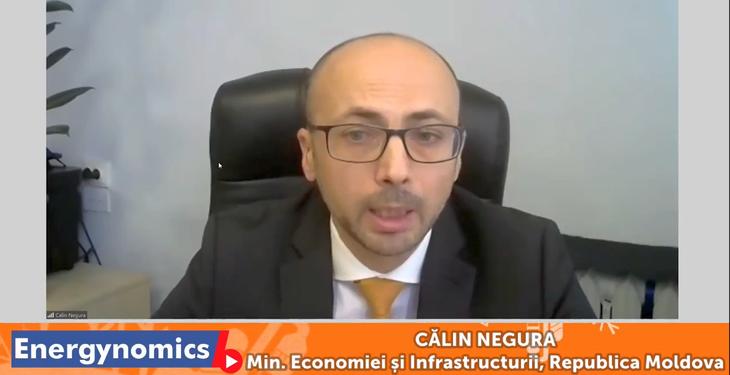One of the main objectives of the Government of the Republic of Moldova is to ensure the final energy consumption, in a safe and affordable way, underlined Călin Negură, head of the Energy Policy Directorate within the Ministry of Economy and Infrastructure. During the “Regional Approach Chișinău” conference, organized by Energynomics, the official referred to the main directions taken by the Moldovan authorities, mainly to increase security in the energy supply, to improve the efficiency of the consumption of energy resources and to exploit the potential of renewable energy.
Since the beginning of 2019, the Republic of Moldova has adopted the entire set of European rules on security of gas supply, after the gas market has been declared open since July 2016 and every final consumer in the Republic of Moldova has the right to choose and change supplier.
“Only recently”, underlined Călin Negură, “the changes that have taken place in directing gas flows from Southeast Europe, but also the adjustment of infrastructure to operationalize the reverse flow of gas on the trans-Balkan corridor, as well as the completion of the Ungheni-Chișinău pipeline, new opportunities are being opened up for increased security of supply and competition on the gas market in Moldova, which will allow the implementation of market economy principles in this important sector.” In his view, the main remaining challenges are “to ensure the independence of the gas transmission system operators, but also to identify and implement the necessary measures to increase the level of liquidity of the gas market, benefiting from the achievements of neighboring countries in this chapter”.
Interconnection with Romania
Since the second half of 2016, the electricity market has been liberalized, but the real opening rate was only at 7,4% in 2019; however, it has continued to increase throughout 2020. “A major obstacle to the development of competition on the electricity market in the Republic of Moldova is of course the lack of interconnection with Romania”, stated Negură. The official estimates that the project of asynchronous interconnection through the back-to-back station and the 400 kV Vulcănești-Chișinău overhead electric line will eliminate this obstacle “toward the end of 2024, once the project is completed”.
Călin Negură also referred to the creation and development of the institutional capacities of the electricity market operator, which is considered “a major challenge. “In this respect, cooperation with the Romanian OPCOM to take on experience and best practices is a good opportunity to overcome the challenge more easily.”
In his speech, Călin Negură also referred to the thermal energy sector, energy efficiency and renewable energy. In particular, the Government in Chisinau is considering supporting investments in renewable energy projects through state support schemes, with particular attention to the implementation of the “waste-to-energy” concept, which would mean exploiting the energy potential of solid municipal waste, waste water, waste from agriculture and the food or livestock industries.
